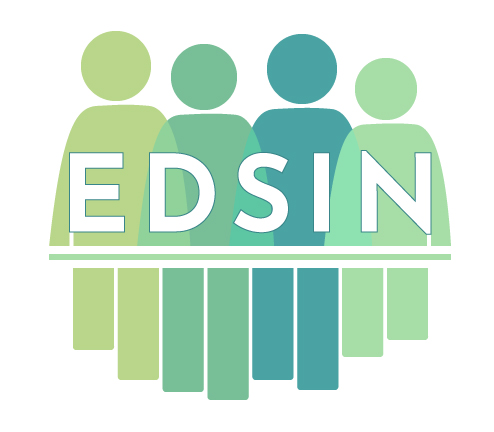EDSIN Statement to Interested Funding Partners
The Environmental Data Science Inclusion Network (EDSIN) was formed in 2019 following a conference where participants examined equity, diversity, and inclusion at the intersection of the environmental and data science fields. Since that time, the network has grown to include over 200 individual members and 19 contributing organizations dedicated to making environmental data science a diverse field that is inclusive and responsive to the communities it serves and interacts with through its collaborative activities. The conference and current activities of the network have been funded through the NSF INCLUDES program (Award #1812997).
In recent months, there has been a growing interest in engaging the network and its members in upcoming funding opportunities. As a co-created initiative, we value input from all of our members and want to respond to these requests in a way that respects their interests and needs and aligns with our shared values. Most importantly, we ask that you be respectful and reflect on your requests and their intent. Developing trust and meaningful relationships takes time, which may not fit into funding deadlines. If your initial request for collaboration is associated with a funding opportunity, it is likely your request will be seen as a means for improving your score.
Currently, the network is primarily supported through volunteer contributions, which can be difficult to sustain long term. The list below offers several ways a partner could support the network, financially or otherwise, with the realization that all partners will have different needs and there may be limitations to what some programs or their funders can support:
- Commit to sustained engagement with the network through collaborative activities that will extend beyond a funding cycle. This could include serving in a leadership role to support one or more community activities like running our monthly community calls.
- Invite an EDSIN representative (i.e., any EDSIN member who brings relevant issues to all members for discussion and to make recommendations) to serve on an advisory board for organizations and programs whose decisions could directly impact our members.
- Please also consider compensation for an individual’s time to serve in this capacity. Read this article on the negative impacts to faculty of color who are continuously asked to support these types of initiatives at their institutions without proper recognition or compensation.
- Provide staff or other financial support to co-convene events such as conferences and workshops or co-produce resources relevant to network activities.
- We are strong advocates for developing programs and resources “with” and not “for” the communities we serve.
- Provide staff or other financial support for working groups that align with EDSIN's priority areas.
- As noted above, financial support could provide compensation for working group leaders and/or participants serving in these roles.
- Provide funds to hire a part-time or full-time community manager that supports EDSIN.
- We recognize that communities without ongoing coordination may struggle to maintain cohesion, and this role would support effective and efficient implementation of activities across the network and its contributing organizations.
- Provide funds to ensure all events are inclusive and accessible. You can reference this article authored by our members, but specific examples include:
- Funding to support attendance at relevant events (e.g., registration fees, travel).
- Funding for live closed captioning of virtual events and ASL interpreters for in-person events.
- Funding to support child care for attendees.
- Funding for professional moderators to facilitate conversations around social justice in STEM and STEM education.
- Provide funds that offer a living wage for interns, graduate students, and postdocs. If your institution sets limits on these wages, we are happy to work with you to advocate for change.
These are not meant to serve as a firm set of rules for engagement with the network but to offer some guidance for interested partners. These will be ongoing discussions as needs of our network members evolve, and we welcome your feedback.
